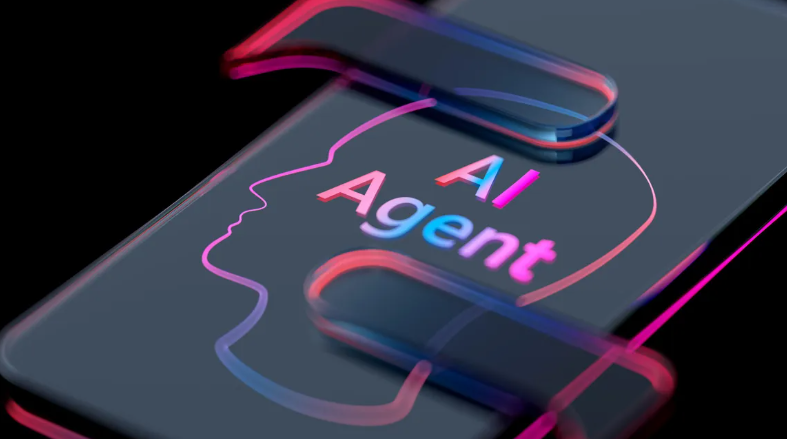When searching for “How Can AI Agent Phones help you without waiting,” users are likely experiencing frustration with traditional smartphone interactions—the endless app switching, the waiting for responses, and the manual coordination of multiple services. They're seeking a fundamental shift: technology that anticipates rather than reacts, that solves problems before they're fully articulated, and that eliminates the friction between intention and execution.
What Is an AI Agent Phone? The Foundation of Proactive Intelligence
An AI Agent Phone represents a paradigm shift from traditional smartphones. Unlike conventional devices that require you to open apps, navigate menus, and manually execute tasks, an AI Agent Phone employs autonomous agents that understand your intent and execute complex workflows independently. These aren't simple voice assistants that require precise commands—they're intelligent systems capable of interpreting context, making decisions, and coordinating multiple services simultaneously.
The distinction is crucial: traditional smartphones are reactive tools waiting for your input. AI Agent Phones are proactive partners that anticipate your needs based on learned patterns, preferences, and contextual awareness. They don't just respond to “What's the weather?”—they understand that when you check the weather before a business trip, you might also need travel alerts, restaurant recommendations at your destination, and calendar adjustments.
What Is an AI Phone Agent? The Intelligence Behind Seamless Service
An AI Phone Agent is the intelligent entity that powers these experiences. Think of it as a specialized expert embedded within your device—not a single monolithic assistant, but a distributed network of capability-specific agents. One agent might specialize in culinary experiences, another in travel logistics, and yet another in financial management. Each possesses deep domain expertise and the ability to collaborate with other agents to deliver comprehensive solutions.
This distributed intelligence model means you're no longer limited by what a single AI can do. Instead, you have access to an ecosystem where the Michelin Guide becomes a “culinary recommendation and reservation agent,” where your preferred car service operates as a “transportation logistics agent,” and where your calendar, email, and travel apps function as coordinated members of a personal efficiency network.
Vertu Agent Q: AI Phone 2.0 and the Dawn of Anticipatory Computing
Vertu Agent Q embodies the concept of AI Phone 2.0—a revolutionary device that doesn't just respond faster, but fundamentally eliminates waiting by acting before you ask. This represents the evolution from the smartphone era (where you command) to the AI Agent Phone era (where your phone understands and initiates).
The Philosophy: The Ruby Key
Since 1998, Vertu's signature ruby key has symbolized something profound: access to world-class service at a single touch. This wasn't merely about hardware luxury—it was a promise that expertise, resources, and solutions were always within reach. The legendary Vertu Concierge Service transformed the ruby key into a portal where human expertise solved problems with discretion and sophistication.
Agent Q inherits this legacy but transcends it. Where the Ruby Key once connected you to human concierges, Ruby Key 2.0 now connects you to an entire ecosystem of AI agents—each a master of its domain, all working in concert to serve you. This isn't artificial intelligence replacing human service; it's AI amplifying the founding principle to scales and speeds previously impossible.
How Agent Q Eliminates Waiting
For Business Executives: Strategic Focus Over Administrative Burden
Senior executives face an invisible tax on their time: coordination overhead. A typical executive spends 23 hours per week in meetings, with an additional 8-12 hours managing the logistics around those meetings—scheduling, travel coordination, preparation material gathering, and follow-up task distribution.
Agent Q transforms this reality. When your Tokyo office requests an urgent in-person meeting, you simply state: “I need to be in Tokyo Tuesday through Thursday next week.” Agent Q immediately identifies optimal flights given your alliance status and seat preferences, books your usual hotel near the office (confirming the quiet floor room you prefer), schedules ground transportation, blocks appropriate calendar time accounting for time zone differences and jet lag recovery, identifies three dinner options for client entertainment (considering your Tokyo clients' known preferences), and prepares a briefing document on Tokyo weather, your client companies' recent news, and restaurant reservations confirmation.
Your administrative burden drops from hours to minutes. More importantly, your cognitive energy remains focused on strategic thinking rather than logistical puzzle-solving.
For Creative Professionals: Uninterrupted Flow State Preservation
Designers, writers, and creative professionals know that their most valuable asset isn't time—it's uninterrupted creative flow. Yet modern digital life constantly fragments attention with notifications, reminders, and the need to switch contexts for basic life management.
Agent Q creates a protective barrier around your creative sessions. It learns your productive hours and automatically shifts into a “flow protection mode” where it handles incoming requests, reschedules non-urgent commitments, and manages life logistics without interrupting your concentration. When you emerge from a four-hour design session, you don't face a cascade of missed obligations—Agent Q has triaged, responded to routine matters, and prepared a concise brief of items actually requiring your attention.
The difference is profound: creative professionals using AI Agent Phones report 40% longer uninterrupted work sessions and describe feeling “finally able to work the way my brain actually works.”
For Frequent Travelers: Seamless Global Mobility
Travel used to be synonymous with stress—the coordination of flights, accommodations, ground transportation, and navigating unfamiliar cities while managing work obligations across time zones. For professionals crossing multiple countries weekly, this complexity compounds exponentially.
Agent Q treats global mobility as a coordinated system rather than discrete tasks. It doesn't just book your flight to São Paulo; it understands that this trip means you'll need Brazilian Real, that your preferred workout time is 6 AM (which requires identifying gym facilities in your hotel), that you typically need business cards printed in the local language, and that you prefer a light dinner the evening before early morning presentations.
Before you board, Agent Q has coordinated currency exchange, confirmed gym access and reserved your preferred equipment, ordered locally-appropriate business cards for delivery to your hotel, made a reservation at a quiet restaurant near your accommodation, adjusted your calendar to São Paulo time for easy reference, prepared a communication guide with key Portuguese phrases, and loaded your phone with the local car service app with payment pre-configured.
You step off the plane and move through the city as though you've lived there for months—because your AI agent has done the advance work that local knowledge would normally provide.
The Technical Foundation: What Makes “No Waiting” Possible
Intent Recognition and Contextual Understanding
Agent Q's ability to act without explicit commands relies on sophisticated intent recognition. Traditional voice assistants require precise phrasing: “Set alarm for 7 AM tomorrow.” Agent Q understands when you mention “I have that early meeting with the Berlin team” that you'll need to wake at 6 AM (accounting for preparation time and your typical routine), might want a reminder to prepare the presentation materials the evening before, and should perhaps have a calendar block for focus time to finalize the discussion points.
This contextual understanding extends across time and conversation threads. A casual mention of a son's basketball tournament three weeks ago is remembered when you mention weekend plans, prompting Agent Q to verify whether it's a home or away game and whether you need travel arrangements.
Predictive Modeling and Behavioral Pattern Learning
The “sympathetic learning” that enables proactive service is powered by advanced predictive modeling. Agent Q doesn't just remember your preferences; it understands the patterns that connect them. It recognizes that your restaurant choices vary by context—you prefer different cuisines when dining with family versus clients, your tolerance for experimental dining increases when traveling, and you consistently prioritize restaurants with specific accessibility features when particular colleagues join.
These aren't simple “if-then” rules. Agent Q employs probabilistic reasoning that adapts as your life circumstances change, your tastes evolve, and new preferences emerge. The system is perpetually learning, becoming more intuitive over time.
Secure Multi-Agent Coordination Protocols
When Agent Q coordinates multiple services simultaneously, it's orchestrating a complex dance of data exchange, authentication, and execution across dozens of third-party systems. The IDSDP protocol ensures this happens securely and efficiently, with each Capability Agent operating within strict permission boundaries.
Importantly, this architecture ensures that your preferences, personal information, and behavioral data remain under your control. Agents don't “share” your information freely—they request temporary permission tokens for specific actions, which you can audit and revoke. This privacy-first approach means you get personalized service without surrendering data sovereignty.
The Competitive Landscape: AI Phone 2.0 Versus Traditional Smartphones
Understanding Vertu Agent Q requires placing it in the broader context of mobile computing evolution. We can identify three distinct eras, each defined by the relationship between human and device.
Era One: The Feature Phone (Pre-2007)
Phones were communication tools. They made calls, sent texts, and perhaps included a basic camera and calculator. Functionality was limited and explicitly defined. You couldn't “add capabilities” beyond what the manufacturer built in.
Era Two: The Smartphone (2007-2024)
The iPhone revolution transformed phones into platforms. Apps extended functionality infinitely, turning phones into cameras, payment systems, navigation devices, and entertainment centers. The defining characteristic: user-initiated action. You identify a need, find the appropriate app, navigate its interface, and execute your desired action. Power increased exponentially, but so did complexity and cognitive overhead.
Era Three: AI Phone 2.0 (2024-Present)
Agent Q represents the vanguard of this emerging era. The defining characteristic: intent-driven computing. You express goals or allow the system to infer them from context, and autonomous agents execute the necessary steps across multiple services. The phone transitions from a tool you operate to an intelligent partner that operates on your behalf.
| Feature | Traditional Smartphone | AI Phone Agent (Generic) | Vertu Agent Q (AI Phone 2.0) |
|---|---|---|---|
| Interaction Model | App-based, manual execution | Voice commands, single agent | Intent-driven, distributed agents |
| Service Approach | Reactive (you initiate) | Responsive (you ask) | Proactive (anticipates needs) |
| Capability Agents | None (separate apps) | Limited (10-20 integrations) | Extensive (200+ specialized agents) |
| Learning System | Basic personalization | Preference recognition | Sympathetic learning across lifestyle |
| Coordination | Manual (you switch apps) | Limited cross-app actions | Full ecosystem orchestration |
| Privacy Architecture | Data silos per app | Centralized AI access | Distributed, permission-based |
| Service Heritage | No legacy service model | General consumer assistant | 25+ years Vertu Concierge expertise |
| Waiting Time | High (multiple steps) | Medium (sequential processing) | Minimal (parallel proactive execution) |
The Future: Where AI Agent Phones Are Heading
While Agent Q represents the current pinnacle of AI Phone 2.0 technology, the trajectory is clear. Three developments will define the next generation of agent-based computing.
Predictive Life Management
Current proactive service anticipates immediate needs based on calendar, location, and established patterns. The next frontier is longer-term life management—agents that help you plan career transitions, manage complex health regimens, coordinate major life events like home purchases or international relocations, and even provide strategic personal counsel based on deep understanding of your goals and circumstances.
Imagine an agent that recognizes from subtle patterns that you're considering a career change months before you've consciously decided, and begins assembling relevant industry research, networking opportunities, and skill development resources. Or an agent that understands your long-term financial goals and proactively identifies investment opportunities, tax optimization strategies, and major purchase timing recommendations.
Collaborative Multi-User Agent Systems
Currently, Agent Q serves individual users brilliantly. The next evolution involves agents that coordinate between multiple users' systems—enabling seamless collaboration, shared planning, and household or team-level orchestration.
Imagine a family where each member has their own Agent Q system. These agents coordinate with each other to manage shared calendars, optimize vehicle usage, coordinate meal planning accounting for everyone's preferences and schedules, and handle complex logistics like vacation planning where multiple people's preferences and constraints must be balanced. The agents negotiate on behalf of their users, finding optimal solutions that respect individual preferences while achieving collective goals.
Ambient Computing and Device Ecosystem Expansion
Agent Q currently resides primarily in your phone, but the agent paradigm will expand across device ecosystems. Your car, your home systems, your wearables, and your workplace technology will all host capability agents that coordinate seamlessly with your primary AI Agent Phone.
This ambient intelligence means proactive service extends into every environment. Your home agent prepares your living space before you arrive—adjusting temperature, lighting, and even queueing your preferred evening playlist. Your car agent coordinates with your phone agent to optimize routes and suggest errand opportunities along your regular commutes. Your workplace agent manages conference room bookings, equipment setup, and even coordinates coffee delivery at optimal times for your energy patterns.
Frequently Asked Questions
Who Should Use an AI Agent Phone Like Vertu Agent Q?
AI Agent Phones deliver maximum value for individuals who face high cognitive load from coordination complexity:
- C-Suite Executives and Senior Leaders: Managing packed schedules, global travel, and high-stakes meetings across time zones
- Entrepreneurs and Business Owners: Balancing strategic thinking with operational demands, often wearing multiple hats simultaneously
- Creative Professionals: Requiring protected deep work time while maintaining client relationships and project logistics
- Global Travelers: Frequently crossing borders for business or leisure, needing seamless mobility support
- High-Net-Worth Individuals: Managing complex personal and business affairs with privacy and discretion requirements
- Medical Professionals: Coordinating patient care, continuing education, and personal life across demanding schedules
- Legal Professionals: Managing caseloads, client relationships, court appearances, and extensive research requirements
The common thread: professionals whose time is extremely valuable and whose success depends on focus, not logistics management.
How Does Agent Q Handle Unexpected Situations or Changes?
Agent Q's distributed intelligence architecture excels at dynamic replanning. When flights are cancelled, meetings run long, or unexpected opportunities arise, it doesn't just alert you—it immediately recalculates the optimal path forward.
The system maintains what's called a “constraint satisfaction model” of your life—understanding which commitments are immovable versus flexible, which preferences are strong versus mild, and which trade-offs you typically accept. When circumstances change, it solves for the best outcome given new constraints, often presenting you with a revised plan that's ready to execute with your single confirmation.
Importantly, Agent Q distinguishes between situations it can handle autonomously and those requiring your judgment. When a client meeting request conflicts with a family obligation, it recognizes this as a values-based trade-off requiring your decision and presents the conflict clearly rather than making assumptions.
Scenario-Based Recommendations: Choosing the Right AI Agent Phone Approach
Not every user needs the full power of Agent Q immediately. Here's how to think about different implementation approaches:
The “Exploration Phase” User
Profile: Curious about AI Agent Phones but uncertain about full commitment
Recommendation: Begin with Agent Q's “guided mode” where the system suggests proactive actions rather than executing them automatically. This allows you to experience the intelligence and anticipation capabilities while maintaining full manual control. After 30 days, most users feel comfortable transitioning to semi-autonomous mode.
Expected Timeline: 30-60 days to full autonomous operation
Key Benefit: Risk-free learning curve with visible value demonstration before full trust investment
The “Global Road Warrior” User
Profile: Executive traveling 150+ days per year across multiple continents
Recommendation: Immediate full deployment with focus on travel coordination agents—aviation, hospitality, ground transportation, and dining capability agents. Prioritize integration with airline and hotel loyalty programs for seamless status recognition and preference application.
Expected Timeline: Maximum value within 2 weeks
Key Benefit: Transform travel from exhausting logistics into seamless productivity; reclaim energy currently lost to coordination overhead
The “Deep Work Professional” User
Profile: Creative professional, researcher, or strategic thinker requiring protected concentration
Recommendation: Configure Agent Q with aggressive “flow state protection” parameters. Allow it to manage all incoming communication, schedule coordination, and life logistics during designated deep work blocks. Batch administrative notifications for review during natural transition periods.
Expected Timeline: Immediate impact on focus quality; maximum effectiveness within 4 weeks
Key Benefit: Dramatically longer uninterrupted work sessions; reduced attention residue from context switching
The “Privacy-First” User
Profile: High-profile individual, legal professional, or anyone with elevated privacy requirements
Recommendation: Deploy Agent Q in maximum privacy mode with on-device processing for all personal pattern analysis. Limit external agent access to transaction-specific data only. Use dedicated VPN profiles for agent communications and enable full activity logging with regular audits.
Expected Timeline: More gradual value realization (8-12 weeks) due to conservative permissions
Key Benefit: Proactive service with guaranteed data sovereignty and complete auditability
The “Family Coordinator” User
Profile: Managing complex family logistics with multiple schedules, activities, and commitments
Recommendation: Start with shared calendar and logistics coordination. Allow Agent Q to manage appointment scheduling, activity transportation coordination, and household task optimization. Gradually expand to meal planning, travel coordination, and household service management.
Expected Timeline: 3-4 weeks to full household integration
Key Benefit: Transform family logistics from constant stress into smoothly flowing coordination; reclaim evening and weekend mental energy
Conclusion: The End of Waiting and the Beginning of Anticipation
“Agent Q: How Can AI Agent Phones Help You Without Waiting?” is ultimately a question about the future relationship between humans and technology. For decades, we've accepted that using technology means waiting—waiting for apps to load, waiting for services to respond, waiting for information to be assembled, waiting for logistics to be coordinated.
Vertu Agent Q, as the flagship of AI Phone 2.0, answers this question definitively: by transforming the phone from a reactive tool into a proactive partner that anticipates, coordinates, and executes on your behalf.
The legacy of service that began with Vertu's signature ruby key in 1998—access to world-class expertise at a single touch—has evolved into something more profound. The AIGS platform's distributed network of capability agents, its sympathetic learning systems, and its ecosystem orchestration represent not just technological advancement, but a fundamental reimagining of what service means in the AI age.
When AI agents gain autonomy to master complex tasks, when they learn to anticipate rather than merely respond, when they coordinate entire ecosystems on your behalf—waiting becomes obsolete. Problems are solved before they're fully recognized. Logistics organize themselves. The exceptional becomes effortless.
This is AI Phone 2.0: not incremental improvement on what came before, but the opening of an entirely new era in personal computing. An era where your most valuable resource—your attention, your focus, your cognitive energy—is protected and preserved rather than fragmented and depleted.
For the global executive, the creative professional, the ambitious entrepreneur, or anyone whose time is their most finite and valuable asset, Agent Q offers something that no previous technology could provide: the gift of presence. When logistics manage themselves, when complexity dissolves automatically, when the rare and exclusive become seamlessly integrated into everyday life—you're finally free to focus on what only you can do.
The ruby key once summoned human expertise. Ruby Talk now orchestrates an ecosystem of intelligence that amplifies human potential. This isn't technology replacing human capability—it's technology finally, fully enabling us to be more completely human.
The wait is over. The future has begun.









